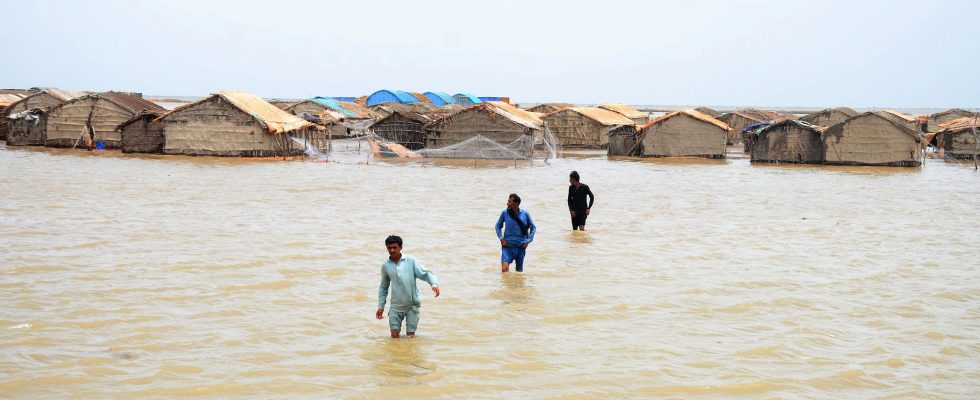In the middle of the G7, G20 or even G77, their acronym is little known. On the occasion of the Summit for a global financial pact, which is being held in Paris on June 22 and 23, the Member States of the V20 wish however to make their voices heard, and their proposals to respond to the problem of the countries most vulnerable to change. climatic. Created in 2015, the year of COP21 and the Paris Agreement, this club of “Vulnerable 20” originally included the finance ministers of Kenya, Vietnam and Madagascar, but also very small states, such as East Timor, or the island of Kiribati. These countries of the South, which then defined themselves as “united in (their) vulnerability” represented “700 million people” and had chosen their name in opposition to the G20, the twenty largest economic powers.
Since then, the group has grown significantly. The V20 has kept its name but now has 58 nations, for a total population of 1.5 billion people, and according to their count, these countries represent 5% of global greenhouse gas emissions. “When they were created, their aim was to have more political influence in the process of discussions on climate change at the UN, by underlining their own legitimacy and by making political proposals”, explains Lola Vallejo, director of the climate program at the from the Institute for Sustainable Development and International Relations (IDDRI). Thus, as early as 2015, the small island states on the front line in the face of global warming contributed to the adoption of the flagship objective of COP21 aimed at containing global warming well below 2°C by the end of the century.
Today the V20 is fighting to establish a fairer international financial system. A particularly central question at a time of the summit for a global financial pact must make it possible to lay the foundations for a reform of the international financial architecture. “The countries of the South are today facing a double problem: on the one hand they are suffering the economic consequences of the Covid and the war in Ukraine – which have derailed their trajectories of economic take-off – but they are also stunned by the consequences of climate change”, underlines Sébastien Treyer, the director of IDDRI.
Growing tensions
Massive heat wave and devastating floods, rising waters, drought… These countries, some of which are simply threatened with extinction, are facing a rapid acceleration of the effects of climate change but also the difficulty of accessing international funding. A study by the group estimates that crises and disasters linked to climate change have already cost their economies $525 billion over the past 20 years. “Climate change has already wiped out a fifth of our wealth – in other words, V20 economies would be 20% richer today if we hadn’t suffered the daily toll of climate loss and damage,” justified in a speech given in October 2022, Mohamed Nasheed, the president of the Maldives.
COP after COP, but also over the major meetings of global finance, these countries have therefore tried to establish a new balance of power. “There is significant distrust and anger that is rising in the discourse of the countries of the South about the differences in treatment that we observe in terms of international funding: for example, we have found new solutions to save Greece at the time of the financial crisis, and today to help Ukraine, but for some African countries, which have very interesting economic take-off trajectories, it is necessary to wait 6 to 18 months to obtain solutions. “, evokes Sébastien Treyer.
Natural alliances
Faced with this, the V20 wants to bring concrete proposals. At the beginning of April, the group, under the presidency of Ghana adopted a declaration defining four priority areas “to ensure a global economy that is climate-smart and supportive of the most vulnerable countries”. Among their proposals, a reform of the global architecture of debt and financing, as well as a strong demand for a strengthening of the climate objectives of the countries. Last November, the group was also at work to develop the “global shield against climate risks”. This financial solution found with Germany and the G7, collected 200 million euros, and aims to respond to the problem of the lack of insurance in the most vulnerable countries.
If the mistrust of the South towards the countries of the North has increased in recent years during the climate negotiations, the success of the agreement on the “global shield” also shows lines of convergence between the G20 countries and the V20. “In the context of climate negotiations, natural alliances are formed”, specifies Lola Vallejo. During discussions between developed countries, which are pushing for very ambitious decarbonization targets, and large emerging countries which still depend heavily on fossil fuels, the North can count on the voices of the most vulnerable. But unlike the richest nations, those of the V20 are already playing their survival.
